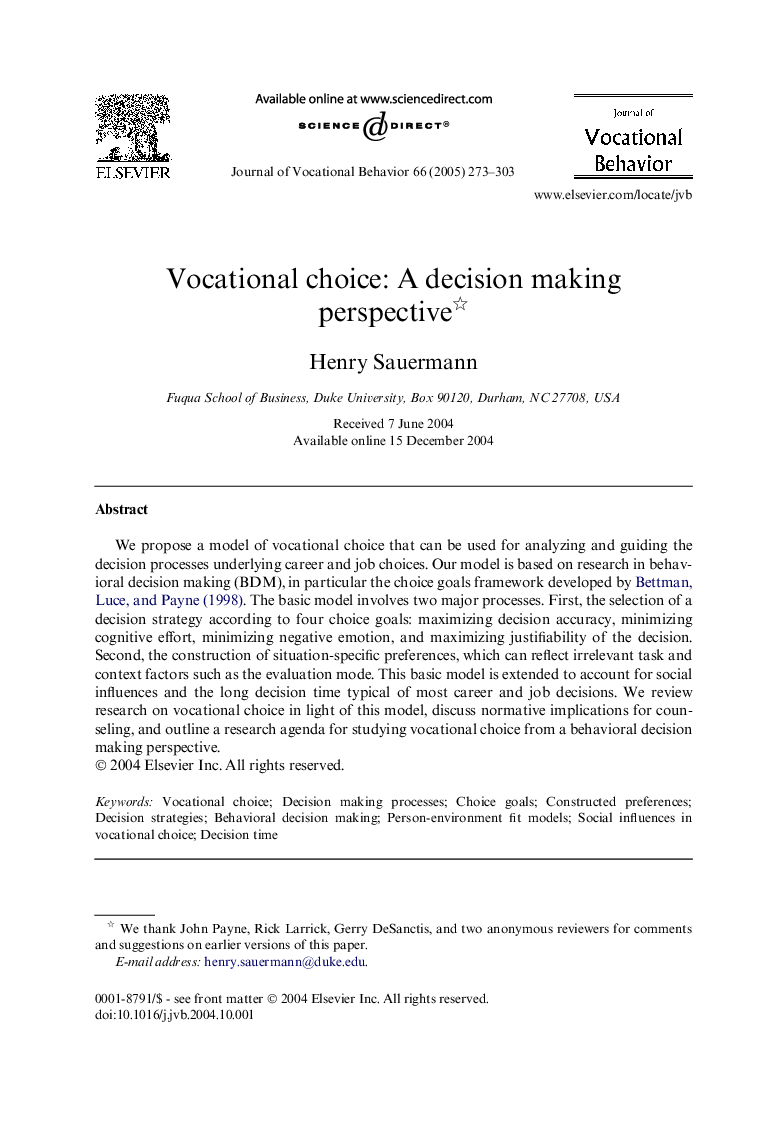| Article ID | Journal | Published Year | Pages | File Type |
|---|---|---|---|---|
| 10439172 | Journal of Vocational Behavior | 2005 | 31 Pages |
Abstract
We propose a model of vocational choice that can be used for analyzing and guiding the decision processes underlying career and job choices. Our model is based on research in behavioral decision making (BDM), in particular the choice goals framework developed by Bettman, Luce, and Payne (1998). The basic model involves two major processes. First, the selection of a decision strategy according to four choice goals: maximizing decision accuracy, minimizing cognitive effort, minimizing negative emotion, and maximizing justifiability of the decision. Second, the construction of situation-specific preferences, which can reflect irrelevant task and context factors such as the evaluation mode. This basic model is extended to account for social influences and the long decision time typical of most career and job decisions. We review research on vocational choice in light of this model, discuss normative implications for counseling, and outline a research agenda for studying vocational choice from a behavioral decision making perspective.
Keywords
Related Topics
Social Sciences and Humanities
Business, Management and Accounting
Marketing
Authors
Henry Sauermann,
